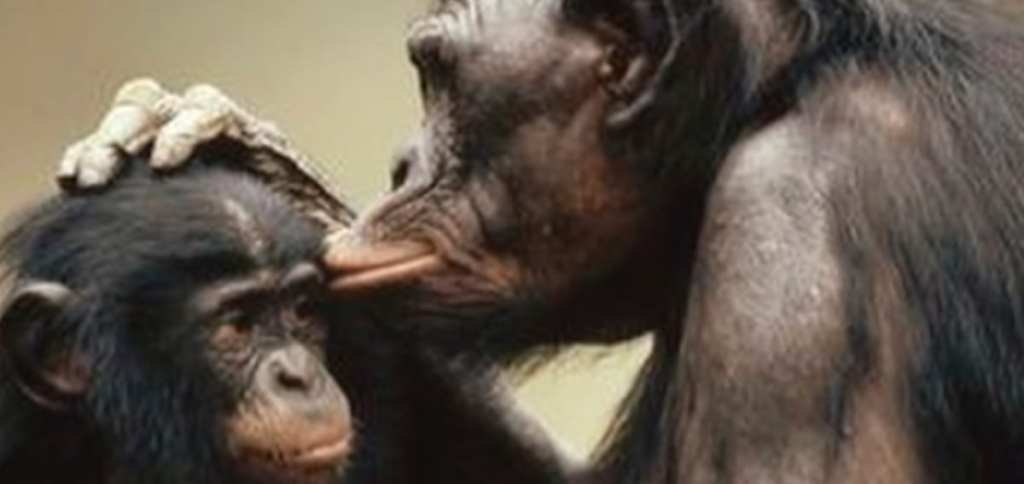Bonobos are endangered great apes that resemble a small chimp in appearance, but their size doesn’t matter when a mama bonobo is looking to give her little boy a leg up during mating season.
If you think your human mom can’t keep her nose out of your romantic life, well…be glad she’s not a monkey.
A recent study observed bonobo moms bringing their male children close to an ovulating female, and then proceeding to fend off other suitors so that their sons have the best opportunity to win a chance at mating with her.
The boys with protective and involved mamas were three times more likely to have babies than those without moms looking out for them. So, maybe there’s something to this whole mother-matchmaking thing?
Martin Surbeck, the study’s lead author and a primatologist, certainly thinks so.
“This is the first time that we can show the impact of the mother’s presence on a very important male fitness trait, which is their fertility. We were surprised to see that the mothers have such a strong, direct influence on the number of grandchildren they get.”
And they do mean direct – the mothers actually stand guard while their sons mate and interfered with any interruption attempts made by other males.
“This was a study that combined genetic testing with information about the group composition at many conception dates,” Surbeck told IFLScience. “We found that having a living mother in the group increased the likelihood of siring offspring for a bonobo male but not for a chimpanzee male.”
The bonobo mothers didn’t look after their daughters in the same way, since daughters “disperse from the native community and the sons stay,” explains Surbeck.
Oddly, their chimpanzee counterparts exhibit none of the same behavior regarding male offspring and their mating behaviors. The social structure of chimps and bonobos also differs – chimps are patriarchal and bonobos are matriarchal, though chimp mothers will help defend even their adult sons in fights.
“Such maternal behavior is more likely to be effective in bonobos, where the sexes are co-dominant and the highest ranks are consistently occupied by females, than in chimpanzees, where all adult males are dominant over all females.”
Interestingly, bonobos are one of only a handful of species (including humans) whose female members outlive their reproductive years – theories on this center around the idea that women living longer helps to ensure a fruitful lineage.
In humans, this is because women can help provide support and care for grandchildren, but in bonobos, it may be because the mamas help ensure grandchildren get, you know…made.
You go, ladies. Keep those species surviving!
